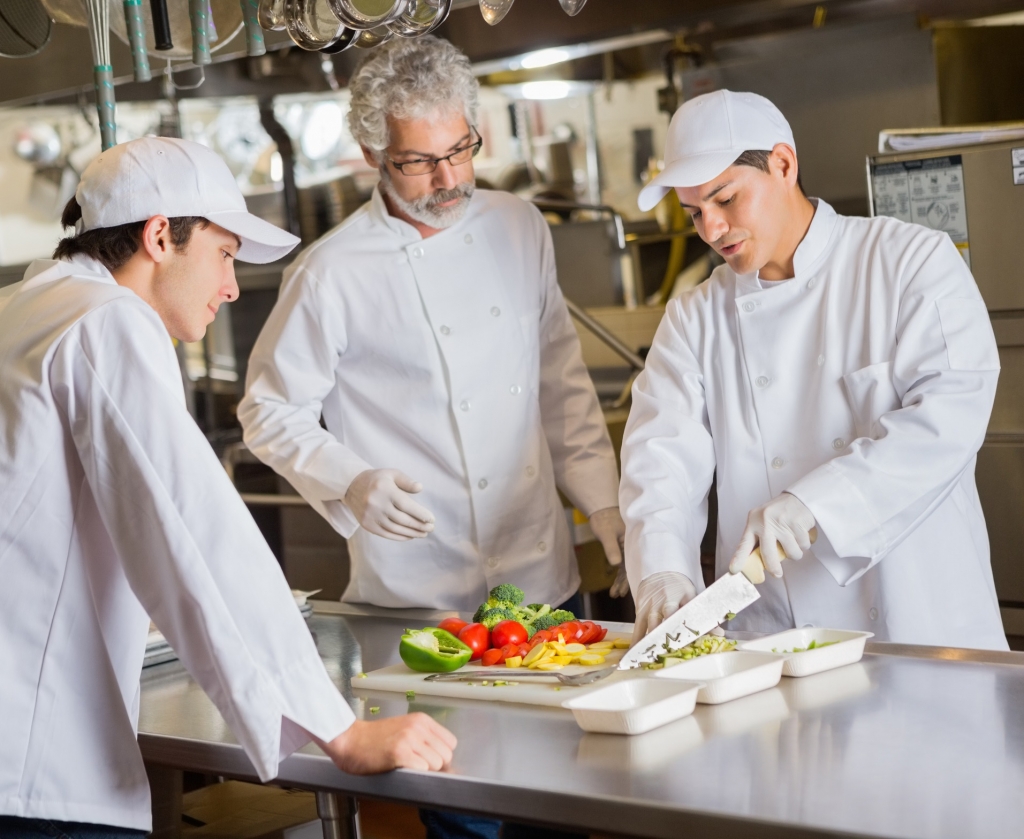Increase Your Work Opportunities: Why a Food Handler Certification Is a Must-Have in the Culinary Industry
In today's competitive cooking landscape, the significance of a food handler certificate can not be overstated. This credential not just shows a person's dedication to preserving food safety and security standards however additionally works as an important possession in improving employability within the sector. As restaurants and food solution facilities significantly focus on licensed personnel, professionals furnished with this certification stand to obtain a substantial advantage. However, the ramifications of this certification prolong beyond plain employability; they can likewise influence wage prospective and career development. Exploring these aspects reveals a much deeper understanding of why this qualification is a tactical financial investment for cooking professionals.
Significance of Food Safety
In the culinary market, the relevance of food security can not be overemphasized. Making certain the safety of food is critical for protecting public health and wellness and keeping consumer trust. Polluted food can result in severe health problems, including foodborne illnesses, which can impact individuals and result in substantial liability for food facilities. Executing strenuous food safety techniques is vital for any type of culinary operation.
Food safety includes a range of treatments, including proper food handling, storage space, cooking, and serving strategies. Sticking to these techniques not just lessens the risk of contamination yet likewise helps in following neighborhood health and wellness regulations. Appropriate training in food safety and security makes it possible for cooking professionals to identify possible hazards and carry out safety nets efficiently.
In addition, a solid dedication to food safety can improve the online reputation of a culinary facility, promoting customer commitment and service development. Consumers are progressively mindful of food safety and security problems, making it important for food trainers to show their adherence to best practices. Inevitably, focusing on food safety is not simply a governing need; it is a fundamental aspect of providing quality food solution and safeguarding the well-being of consumers.

Qualification Needs
Food safety methods are just as effective as the individuals implementing them, making accreditation a crucial action for food trainers in the culinary market. To obtain a Food Trainer Certificate, candidates need to normally complete a training program that covers essential subjects such as foodborne diseases, sanitation, individual hygiene, and safe food managing strategies.
The majority of certification programs are designed to fit different learning designs, using alternatives for online, in-person, or crossbreed formats. Participants need to pass an evaluation to demonstrate their understanding of the product, with a minimum passing score typically established at 70%.
The period of training can differ, with some programs calling for just a few hours, while others might cross several days. After successfully completing the program and exam, candidates receive their qualification, which is generally valid for three to five years, depending on local regulations.
Revival typically entails retaking the course or finishing a refresher course program to ensure that food handlers stay updated on the current practices and criteria. Compliance with these qualification requirements not just enhances private understanding but additionally adds to the general safety and high quality of food service operations.
Work Market Demand
Exactly how has the task market for food handlers progressed recently? The demand for food trainers has actually substantially increased, mostly driven by the growing awareness of food safety and security and hygiene amongst customers and regulatory bodies. With the surge of foodborne ailments, restaurants, catering solutions, and food production firms are prioritizing the hiring of licensed food handlers to make certain compliance with health and wellness laws. This change has caused an increased focus on food security training and accreditation as prerequisites for employment in the culinary sector.
Additionally, the increasing restaurant field, specifically with the development of food delivery solutions and food trucks, has actually developed an abundance of task opportunities for food handlers. The demand for knowledgeable employees that can safely prepare and manage food has actually become vital. servsafe food handler certificate. Furthermore, as cooking services adopt extra rigid safety protocols, the value of a check it out food trainer certification has actually increased, making it a vital property for task candidates
Because of this, individuals entering the culinary workforce are locating that obtaining a food trainer certificate not only improves their employability but also positions them positively in an affordable work market that significantly focuses on food safety and security and health standards.
Benefits of Qualification
Acquiring a food handler certificate provides numerous benefits that significantly improve an expert's standing in the culinary industry. It shows a dedication to food safety and hygiene, which is extremely important in preventing foodborne health problems. servsafe food handler certificate. This qualification equips individuals with crucial understanding relating to secure food managing methods, including find out proper storage, cooking temperature levels, and cleanliness treatments
Furthermore, possessing a food trainer certification can boost a person's employability. Several companies focus on prospects with this accreditation, watching it as an indication of professionalism and reliability and expertise. This can lead to far better job opportunities and possibly higher salaries, as qualified individuals are frequently turned over with greater responsibilities.
In addition, the certification promotes a society of security and responsibility within the work environment. Preserving a food trainer certificate can open up doors to further instructional and job innovation opportunities within the cooking area. servsafe food handler certificate.
Steps to Obtain Certified
Getting a food handler certification involves an uncomplicated process that can set people on a course to boosted occupation potential customers in the culinary sector. The very first step read more is to locate a recognized program or training service provider that provides food safety training courses. Lots of organizations give both in-person and on-line options, enabling versatility in knowing.

After efficiently passing the test, individuals will obtain their food handler certification, which is often legitimate for a certain duration, usually three to five years. To maintain certification, it might be required to finish refresher programs or retake the test prior to the expiry day.
Last but not least, it is necessary to verify any type of neighborhood or state-specific laws regarding food handler certification, as requirements can differ. By complying with these steps, individuals can acquire their qualification and substantially boost their employability in the affordable cooking landscape.

Final Thought
Finally, getting a food trainer certification is essential in the cooking market, as it makes certain adherence to food safety criteria and improves employability. With the growing demand for certified workers, this credential not only opens up doors to work chances however additionally contributes to job development and increased gaining possibility. Ultimately, a food trainer certification represents a commitment to safety and professionalism and reliability, promoting a society of responsibility that profits both employees and employers in the food solution sector.